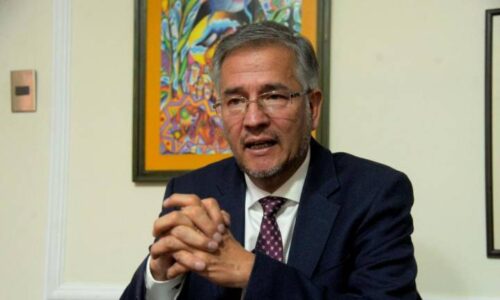
The legislators indicated that they hope that this attitude is not part of a strategy to generate an artificial conflict of a bilateral nature. “The negotiations must continue to be framed in the commercial sphere, as was done in 2019,” they said.

22 July 2021
Chilean Senators hope that Bolivia’s refusal to negotiate rates is not an “artificial conflict”
A call to the Bolivian authorities to facilitate commercial negotiations between the Port of Arica and the Administration of Port Services-Bolivia (ASP-B), was made by the Senators of Arica and Parinacota, Jose Miguel Durana and Jose Miguel Insulza, after learning that the neighboring country’s public company unilaterally suspended meetings with the Port on July 6, the purpose of which was to access tariff discounts for 22 services for Bolivian import cargo.
In this regard, Durana indicated that “it does not seem logical that while the Port of Arica expresses all its willingness to facilitate a new agreement, on the other hand, the Administration of Port Services-Bolivia (ASP-B) abandons the meetings and does not fulfill its promise to return to Arica to negotiate its discounts. Hopefully, this attitude is not part of a strategy to generate an artificial bilateral conflict. “The negotiations must continue to be framed in the commercial sphere, as was done in 2019,” they said.
In this sense, the parliamentarian mentioned that it is necessary for the Bolivian Government to leave behind its vision of resentment against Chile since this prevents progress in commercial, cultural, and social matters. “Let’s hope that with the Port of Arica, the same thing that happened with the Arica-La Paz Railroad last May does not happen, where the Government of President Luis Arce unilaterally suspended the technical test of the train with cargo from his country. That decision halted the possibility of reactivating this mode of transport, the same one for which we have been accused in international forums of not reactivating it.”
Finally, the legislator called on the Bolivian Government to resume negotiations as soon as possible. From the Port of Arica, they indicated that it is a gravitating terminal in the development of Bolivian foreign trade. “In a pandemic, it has grown in its cargo movement, despite Bolivia’s attempts to promote other ports. Arica has the most convenient and efficient rates and services, but it cannot be claimed that they have zero cost, because behind it there are investments and jobs to be settled,” says an official statement.
For his part, Senator Jose Miguel Insulza expressed the need for the Administration of Port Services-Bolivia (ASP-B) to urgently resume negotiations with the Port of Arica, “especially because the current rate agreement that they themselves signed in October 2019, expires next August 4th. I don’t think they want to promote a conflict like the one that took place two years ago, by refusing to negotiate.”
He added that “the Port of Arica has carried out intense work that has directly benefited Bolivian cargo, with tariff incentives for the fluidity of cargo, improvements in infrastructure to bring larger ships, efficient programming of road transport, reduction of the port closure hours due to storm surges, and the incorporation of technology into operations.”
The legislator affirmed that –it is entirely logical– that the tariff negotiations take place in the Port of Arica, “since the port operations are carried out in the maritime terminal, not in the city of La Paz in Bolivia. It is very useful and illustrative to have the immediate possibility of entering the port, in case there are doubts while the talks are taking place. It is to be hoped that Bolivia understands this and understands that in the Port of Arica there is a spirit of facilitating its trade, but under commercial reasonableness, as occurs in all ports worldwide.”




